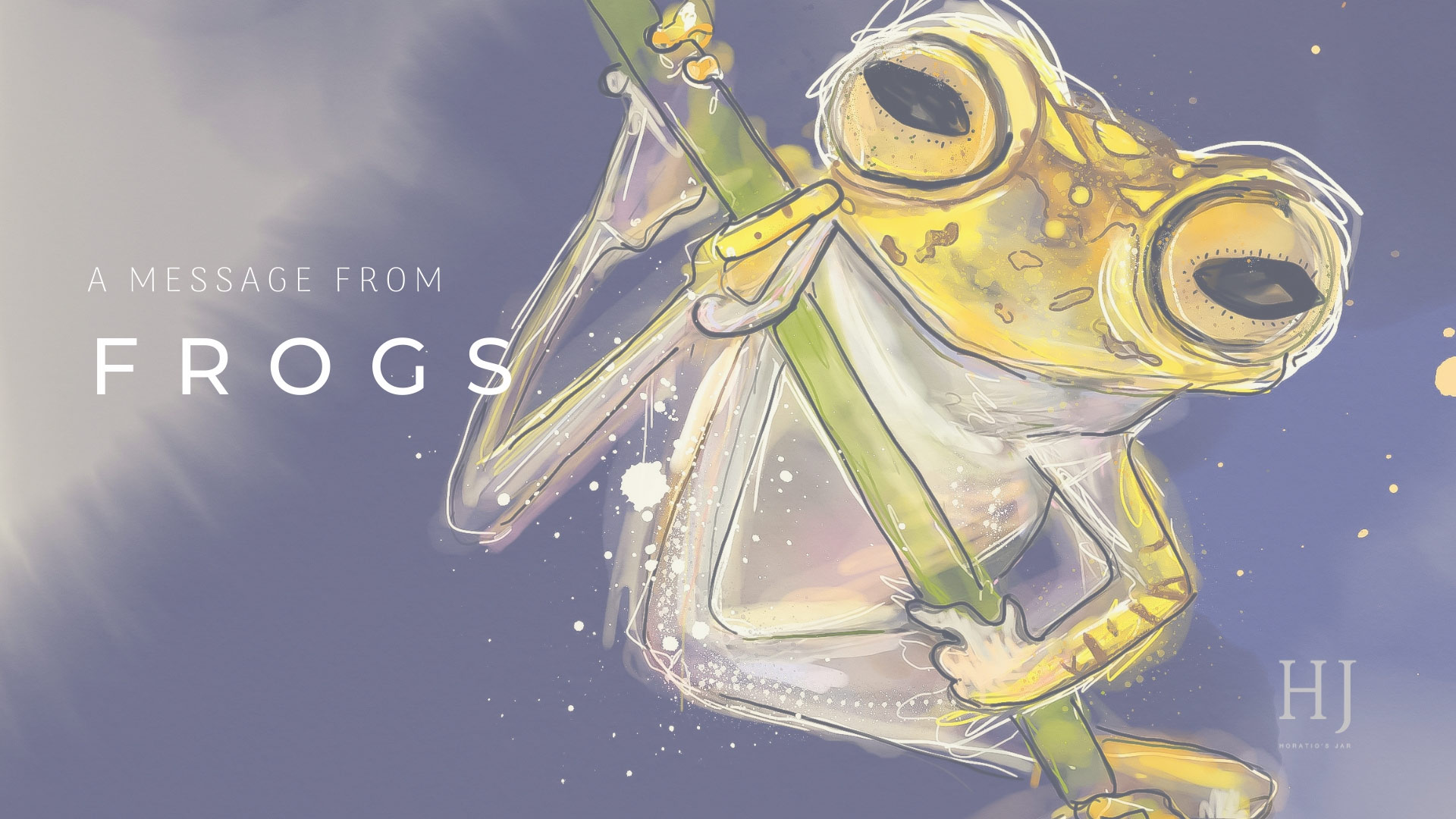A Frog's Life
Everything in nature has its place. We have arduously learned, after savaging every last wilderness on the earth- if you disrupt even the tiniest of things, you set into motion a spiral that unravels the whole tapestry of life on this planet.
Frogs have lived and thrived on mother earth for 250 million years, dwarfing the timeline of nearly everything else living in today’s biosphere – excluding dragonflies, sharks (450 million years), and cockroaches. With such a robust history of survival and the tenacity to thrive through millennia of changes, frogs everywhere are now going extinct.
A species of incredible endurance and mythological status; amphibians such as frogs, salamanders and lizards and crocodiles, outlived the dinosaurs, meteors and the ice ages to greet humanity onto the earth’s stage some short time ago.
Frogs and toads are incredible little creatures, their diversity and habitats just as broad. Frogs live on every continent, except Antarctica and live in almost all environments, including arid deserts that have no water and in places that turn to ice in the winter.
Frogs have an incredible range of adaptations that have helped them live and thrive on the planet for eons, and yet, we see now nearly all frogs are at threat from extinction.
In the early 1990s a plague called chytrid, a bacterial infection (Chytridiomycosis is an infectious disease in amphibians caused by the chytrid fungus Batrachochytrium dendrobatidis and Batrachochytrium salamandrivorans), decimate rare populations the world over.
What Can You Do?
The first thing you can do is make frog friendly gardens and stop using chemicals cleaners in and around the home!.
Frogs need water to breed, and shady, leafy areas to keep themselves fresh. Ferns, grapevines, tropical plants and grasses are excellent for frogs to hide Plant frog friendly plants in and around your home.
https://perthzoo.wa.gov.au/get-involved/do-your-part/frog-friendly-garden
- Some plants are toxic to frogs so be careful not to put your pond near these.
- A frog pond only needs to be a few inches deep. Having areas raised by adding rocking or logs will help frogs in and out of the pond.
- Frogs start their lives in water, as tadpoles and develop into full-size frogs.
- Frogs live up to 15 years.
- Frogs eat insects, snails and mosquito larvae.
- Choose earth-friendly cleaning products in and around the home
- Frogs skin is sensitive to chemicals; any household cleaner will kill your frogs.
- If you are lucky enough to have frogs inhabit your backyard be kind to them.
- Frogs are so delicate that your skin can cause them harm.
- The chemicals you use every day inadvertently end up in the environment and the food, air and water we rely on to survive. What poisons frogs also poisons you.
- Keep fertilisers and pesticides well away from any plants and water sources your frogs inhabit these dangerous chemicals will kill them.
Guest Contributor: Emily Rack
Business Name: Horatio’s Jar
Publisher: Digital Schools
Emily Rack is a yoga teacher, meditation instructor, freelance writer and visual content creator. She incorporates a unique creative flair into her yoga and meditation classes, courses and workshops. Emily hosts events and classes in schools and the wider community & is passionate about teaching the art of mindfulness.
——-
PUBLISHER’S DISCLAIMER: The publisher of this blog post (Digital Schools PTY LTD) works in partnership with the school as a 3rd party provider to help build and maintain the school website. Digital Schools sources a range of experts who provide products and/or services to educational institutions and we work with them to produce and publish topical information in the form of blog posts that we think may be relevant, interesting or topical to families within the community. The views, opinions and content listed in this blog post are that of the guest contributor and/or publisher (Digital Schools). It should be noted that whilst the publisher and guest contributors are acting with the best intentions and in the best interests of the school and their community to provide helpful or interesting information, sometimes the content may not necessarily reflect the views of the school.
The information in this blog post is not meant to be used, nor should it be used, to diagnose or treat any medical condition. For diagnosis or treatment of any medical problem, consult your own physician. The school and the publisher of this blog post are not responsible for any person reading or following the information in this article who may experience adverse effects.
Any references to external websites or sources are provided for informational purposes only and do not constitute endorsement by the school or publisher in any way and the publisher and/or school cannot guarantee accuracy of information listed.
If you have feedback on any content on this platform, you can submit it to the publisher using the feedback link provided at the bottom of this page.



